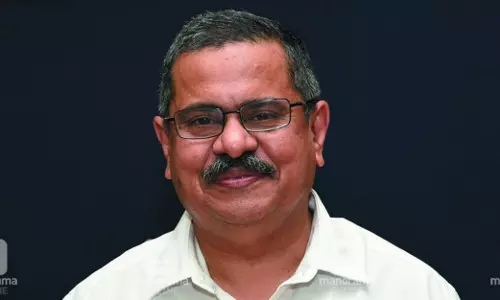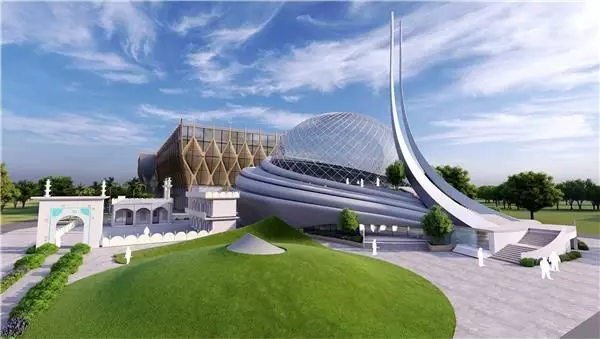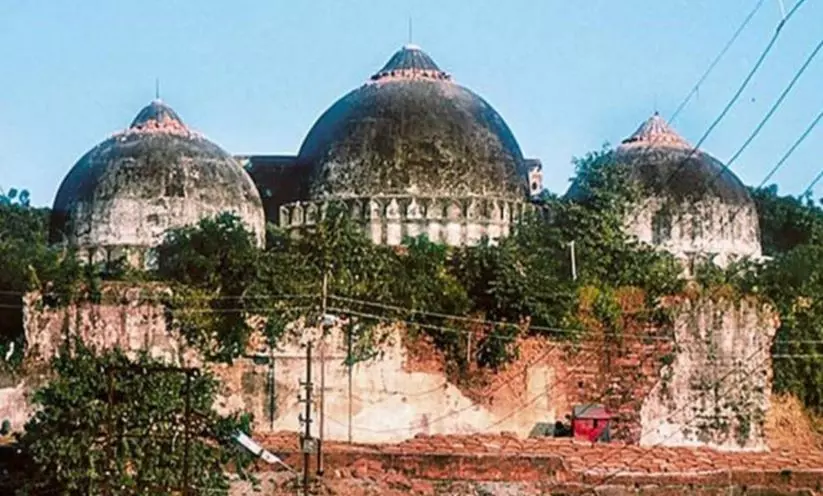
Decks being cleared, slowly, for a mosque in Ayodhya
text_fieldsArtist's impression of the design of the mosque complex to be built in Ayodhya
Ayodhya: The construction of a mosque at Dhannipur village in Ayodhya, at long last, is reported to be getting set to start before long.
The project was born out of the Supreme Court's verdict awarding the land of the erstwhile Babri masjid, which was demolished by Hindutva mob on 6 December 1992, for the construction of a Hindu Ram temple under a newly formed trust for the purpose and allocating a suitable and prominent plot of 5 acres within Ayodhya for the construction of a mosque.
But while the temple construction took off promptly with all fanfare under the auspices of the UP and Central governments and is expected to be completed by the end of this year, not so with the mosque. Let alone laying a single brick of the building, even the allocation of a land with all permissions for a mosque is yet to be accomplished. The apex court order came in November 2019, but after three and a half years since then, nothing worth mention has been done on the envisaged plot.
However, now apparently the construction may begin soon since the decision on the issue of change in land use is likely to be taken in the board meeting of the Ayodhya Development Authority (ADA) scheduled this week, as per a report by news agency IANS which attributed the information to a representative of Indo-Islamic Cultural Foundation (IICF) Trust.
The authorities' attitude towards the court-ordered construction was clear from the happenings at various stages of the construction project. The first was the delay in obtaining no objection certificates (NOCs), followed by further delay in the change of land use.
The IICF Trust was set up by the Uttar Pradesh Sunni Central Waqf Board (UPSCWB) to look after the Dhannipur project.
Following the orders of the Supreme Court, the state government had given five acres of land in that village to the Sunni Waqf Board for construction of a mosque.
The Waqf Board had handed over the land to the IICF Trust for construction of the mosque in 3,500-square metre, a four-storey super specialty charity hospital and a community kitchen in 24,150-square metre, a museum in 500-square metre and an Indo-Islamic Research Centre in 2300-square metre.
The Trust has named the project after noted freedom fighter Maulvi Ahmadullah Shah.
The Wakf Board had formally launched the Dhannipur project on the allocated five-acre land on January 26, 2021. But the rest of the construction activity would read more like a tale of hurdles, bureaucratic apathy and disregard for the intent of a court order.
The IICF Trust had applied online in May 2021 to get its ready map passed by the Ayodhya Development Authority.
Athar Hussain, secretary, IICF Trust, was quoted by IANS as saying: "We expect good news this week. As soon as land use is changed, a mosque, a hospital, a research institute, a community kitchen and a library will be constructed by the IICF Trust on five acres of land. The matter of change of land use is expected to be taken up by the ADA and resolved in the next board meeting this week."
ADA chairman and Ayodhya divisional commissioner Gaurav Dayal said: "The Board meeting is scheduled this week and several issues, including land use change, are expected to be discussed in it."
Earlier the Hindu daily had reported a prominent member of the IICF having said that the court had ordered a prominent part of the city, the Muslim body got a plot on the outskirts of the city.
The zero-carbon-footprint design was done by Prof. S.M. Akhtar, the founder dean of the faculty of architecture and ekistics at Jamia Millia Islamia University, Delhi.
But when it came to obtaining the required approvals, that met with a series of hurdles. The trust submitted the design plans to ADA, paying the prescribed fees. But it took months for the authorities to inform the applicant that the submissions had to be done online. And when it was fulfilled online, it transpired that the trust had to furnish no-objection certificates (NOC) from various departments for final approval of the design - a process that took over a year.
The mosque committee managed most of the NOCs, but then it was the turn of the fire department to cite that the minimum width of the road outside had to be 12 metres. So much for complying with the court directive to allot a 'suitable' land.
The Hindu also quotes Arshad Afzaal Khan, a trustee of IICF, who worked overtime to get approvals. Running from pillar to post, and travelling nearly 50km daily, he almost completed the paperwork when another hurdle came up: he was told that construction was not permitted there because it was agricultural land. So, it took a further procedure to change land use which is now reported to be getting over.



























